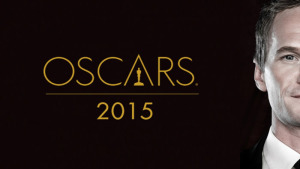They call the Academy Awards the “Super Bowl for Women.” Unlike the Super Bowl, ad space was sold out four months before the event. Just like the Super Bowl, ad rates were up to $1.9 million for a 30-second spot with first-time host, Neil Patrick Harris.
Last year the Academy Awards captured nearly 46 million viewers, an 8% increase YOY, making it the most-watched entertainment telecast in the past ten years, with the biggest viewership in 14, and a seven-year high among the much-coveted 18-34 demo.
Pepsi was the exclusive soft drink advertiser last year, but gave it back to Coca-Cola, which had held that spot for the five prior years. The switch may have been due to the inadvertent promotion Coke got when last year’s host, Ellen DeGeneres, “ordered” pizza for the stars sitting in the audience and the boxes had the Coke logo on them. You really had to look for them, but these days a plug’s a plug, and ABC gave Pepsi a number of make-good spots to make amends. Now Coke is back.
Last year must have been the year where promotion trumped ads. Samsung is back following the celebrated three million-tweeted selfie that featured their Galaxy Note 3. As we have said in the past, counting tweets, particularly one of a crowd of celebrities, may not be the most accurate way for brands to calculate ROI, but it certainly did give the phone more on-air face time, what with social media hype the current proxy for actual emotional engagement. We’ll see what Mr. Harris does this year.
J.C. Penney will be sponsoring the Oscars. This will be their 14th consecutive year. Their ads usually feature high fashion for all the obvious reasons but advertising, and advertising believably, are two entirely different things and it hasn’t seemed to have done the brand much good. Who shops for high fashion at JCP? But, one supposes a girl and a brand can dream, can’t they?
In other ad-biz news, GM will be back this year, replacing Hyundai. Anheuser-Busch InBev is expected to run ads for Stella Artois, but given the brand and the venue, you probably shouldn’t expect any puppies. King’s Hawaiian, the #1 branded dinner roll in the United States, is running an ad looking to gain national awareness. They’ve positioned themselves as the “Official Snack of the Awards Season” (having already run ads on the People’s Choice Awards) and, as the “Super Bowl for Women,” the Academy Awards is certainly the spot to catch the attention of moms, although awareness in-and-of-itself – no matter how much you entertain an audience – isn’t usually a good ROI metric and doesn’t necessarily guarantee business, i.e. sales. And bread and buns as “snacks?”
We approach the business of advertising on big events like the Super Bowl and the Academy Awards, from two perspectives, “entertainment” and “engagement,” which are really two, very different things. Just like movies and advertising are two different things, although more and more advertisers seem to forget that fact. One is there just to entertain. The other is there to convince viewers to engage with the brand and behave more positively toward the brand in the ad. You know, buy something. At the very least think better of the brand. Not just sit there and laugh or be amazed at green-screen special effects, blasting funny/exciting/sexy commercials at them.
We measure real emotional ad engagement using a validated process to fuse emotional and rational values of category and brand, and then quantify how exposure to the advertising emotionally engages the viewer, hopefully getting the viewer to “see” the brand as better meeting the expectations they hold for the category Ideal. And yes, before the movie/research critics start carping, entertainment and engagement are not necessarily mutually exclusive. But advertisers often confuse the two, and if you’re a marketer and are given your choice between one or the other, you should always vote for “engagement.” Attaining both means not only was your creative top-notch, but your brand strategy was, as well.
Anyway, last year – also based upon our predictive engagement assessments – we offered up some odds on who would win the Academy Awards in the “big” categories, and did pretty well. Please note we provide these for entertainment value only. If you’re looking to engage in some moneymaking outcomes, you’re on your own. Just like advertisers without engagement metrics.
Best Picture
Birdman 8/13
Boyhood 5/4
The Imitation Game 50/1
The Grand Budapest Hotel 50/1
American Sniper 50/1
Whiplash 125/1
The Theory of Everything 125/1
Selma 150/1
Best Director
Alejandro Gonzalez Inarritu (Birdman) 8/15
Richard Linklater (Boyhood) 11/8
Wes Anderson (Grand Budapest Hotel) 100/1
Morten Tyldum (Imitation Game) 100/1
Bennett Miller (Foxcatcher) 150/1
Best Actor
Eddie Redmayne (Theory of Everything) 4/1
Michael Keaton (Birdman) 3/1
Bradley Cooper (American Sniper) 18/1
Benedict Cumberbatch (Imitation Game) 66/1
Steve Carrell (Foxcatcher) 125/1
Best Actress
Julianne Moore (Still Alice) 1/100
Reese Witherspoon (Wild) 25/1
Rosamund Pike (Gone Girl) 40/1
Felicity Jones (Theory of Everything) 66/1
Marion Cotillard (Two Days, One Night) 80/1
Best Supporting Actor
J.K. Simmons (Whiplash) 1/80
Edward Norton (Birdman) 18/1
Mark Ruffalo (Foxcatcher) 28/1
Ethan Hawk (Boyhood) 80/1
Robert Duvall (The Judge) 100/1
Best Supporting Actress
Patricia Arquette (Boyhood) 1/80
Emma Stone (Birdman) 30/1
Keira Knightly (Imitation Game) 66/1
Meryl Streep (Into the Woods) 66/1
Laura Dern (Wild) 66/1
We wish all the nominees and advertisers “good luck.” Actor/Director Clint Eastwood, a 10-time nominee himself has noted, “There’s a lot of great movies that have won the Academy Award, and a lot of great movies that haven’t. You just do the best you can.”
With engagement assessments, advertisers can do better than that.
Find out more about what makes customer loyalty happen and how Brand Keys metrics is able to predict future consumer behavior: brandkeys.com. Visit our YouTube channel to learn more about Brand Keys methodology, applications and case studies.
Share this:
